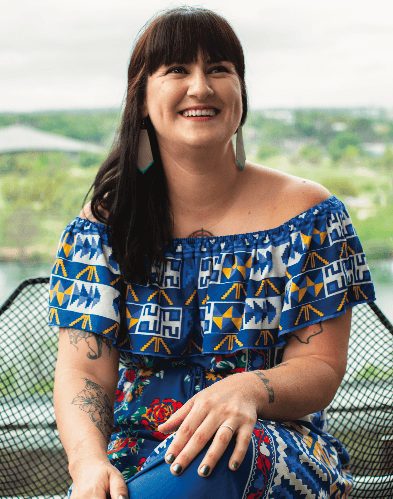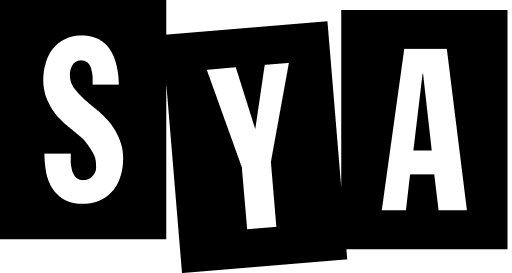
It was the early spring of 2005 in Ohio. My boyfriend and I had been together for almost a year when I discovered I was pregnant in a Planned Parenthood.
Like many 23-year-olds, I was irresponsible. In fact, just six months before I had failed out of my first year of college. I was never taught practical things while growing up, like how to balance a checkbook or manage time. No one ever told me about periods, sex, or birth control outside my fifth-grade health class. My own mother was a teenager when she became pregnant with me, with an abusive young man who would later molest me. Needless to say, I was not set up for success.
Adulthood felt like I was being thrown to the wolves. It was a mix of alcohol, drugs, and late nights numbing years of abuse. I barely scraped by working at a record store and did not have any financial support from my family. I had no medical insurance. My menstrual cycles had always been irregular, and I wasn’t even sure I could get pregnant. I had leukemia as a child and had been told that the chemotherapy could impact my reproductive system.
Sometimes I forgot to take my birth control pills. I hoped that one byproduct of my cancer (which I considered to be my second most major life tragedy, following being born to a teenager and a molester) was that I wouldn’t get pregnant in spite of sometimes having unprotected sex and being inconsistent with birth control.
I had run out of pills and went to get a refill at Planned Parenthood. “Could you be pregnant?” they asked. They gave me a test and there was no doubt that I was pregnant. I was in shock. The clinician gave me a few pamphlets with my options. Based on my last menstrual cycle I was probably just five weeks pregnant, which meant I could have a nonsurgical abortion if I decided not to keep the pregnancy.
I called my boyfriend and told him we needed to talk. I’m certain he must have thought I was going to break up with him. Holding the pamphlets, head down, I told him I was pregnant, as if admitting defeat. My boyfriend, who would later become my husband and the father of my two children, looked completely caught off guard. “But you’re on birth control?” He didn’t know at the time that I occasionally forgot pills, or that I couldn’t deal with being sober because my trauma and feelings of failure were too much to bear. He did know that this decision was entirely my own and said he’d support whatever I chose to do. I already felt pregnancy symptoms at that point—sore breasts, cramps, and overall discomfort. I wanted to decide immediately, because if I was not going to keep this pregnancy I didn’t want to develop any lasting associations to the way I felt.
In one day, I went from thinking I was physically incapable of having children to needing to decide whether to keep a pregnancy. At this stage of my life, the reality of motherhood sounded like a nightmare. I could barely take care of myself. Why would I want to bring children into a world where kids get cancer, get molested by their fathers, and flunk out of college? It felt like an easy decision. I called the nearest abortion provider and made an appointment, which was actually two visits. My boyfriend accompanied me to both.
Spring in the Midwest can be unpredictable, sunshine one day and gray the next. The sky was gray the day of each of my appointments. We were not celebrating this; no one celebrates abortions. In fact, it felt like the only people who talked about abortion at all were the protesters who greeted me outside the clinic. My first visit included a vaginal ultrasound to determine gestational age, but not the kind from the movies. There were no smiles and happy couples holding hands. Only me and a nurse in a quiet room in Dayton, Ohio.
At the next appointment I was given RU-486, the abortion pill. ere were actually two pills—one to stop the pregnancy and one to expel it from my uterus. I took one pill in the clinic and was given information about what to expect. I didn’t feel anything as we left the clinic. I wanted to cry, because I imagined that is what happens when you get an abortion. I wanted to feel relief, because I imagined that is also what happens when you get an abortion. I just couldn’t feel anything.
The next day I bled.
I bled heavily, as was to be expected. I bled so much that I had to set up a pallet on the floor outside the bathroom in the house I shared with a roommate. Two of my friends kept me company for a few hours, distracting me with music and movies. Once my boyfriend got o work, he joined me. Every time I went to the bathroom I wondered, “Is this it? Is this my… baby? Embryo? Barely fertilized zygote?” I wouldn’t be able to see it anyway.
I wish I could say that my abortion served as an immediate turning point in my life, but it took several more years for me to begin processing my traumatic adolescence. Three years after my abortion, my boyfriend and I became pregnant for the second time. We were stable then, and I can’t articulate how different things felt. We welcomed the pregnancy.
Sometimes I wonder what my abortion baby would be like and then wonder if that is even healthy to think. I don’t regret having an abortion. I’m certain that if I’d kept the pregnancy, my life would not be what it is now. It would have undoubtedly become worse. I never felt able to openly discuss the abortion outside of a few close friendships, because I felt ashamed and stigmatized. I was used to feeling haunted by shameful, dark secrets. But as I become older, I become more comfortable in my skin and my choices. At this point, I refuse to feel ashamed of my abortion. It was a decision that allowed me control of my life and saved me from a life from poverty. I had an abortion and I am better for it, and I’m grateful to be a part of this movement and to share my truth.
photo by Elizabeth Rudge
